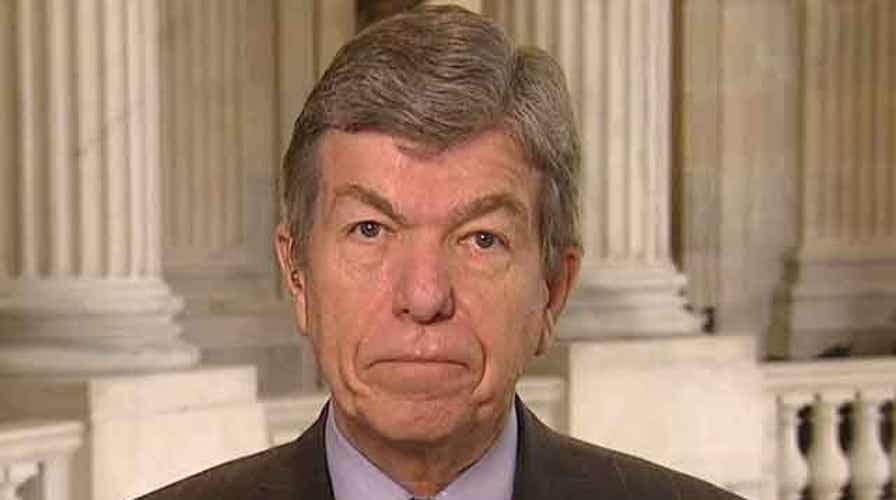As debate begins this week on sweeping firearms legislation, supporters are running into renewed concern from conservatives that the bill could lead to a gun "registry" despite adamant pledges to prohibit this.
Fear of a national registry has remained even after two influential senators last week proposed a compromise on background checks. The proposal, which will be voted on as an amendment, would expand background checks to gun shows and Internet sales while exempting personal transactions like those among family members.
The provision, meant to ease concerns about the checks becoming too pervasive, also included language to bar the creation of a federal registry.
But the language was not enough. Some gun-rights supporters continue to worry about a slippery-slope scenario, where a background check expansion sets the stage for a national registry -- which could then be exploited to seize weapons from individuals. Despite the fact that licensed dealers already keep records of their sales and a national registry has not yet been created, the Second Amendment nightmare scenario has lived on.
"Once you get these lists out there, once you have a gun dealer keeping lists for lots of other people, the only way that works, frankly I think, is if you keep the paper," Sen. Roy Blunt, R-Mo., told Fox News on Monday. "And if you keep the paper, eventually, somebody's going to ask for it."
Concerns about gun seizures were stoked most recently after a New York gun owner had his weapons mistakenly seized. They were later ordered to be returned.
Sens. Joe Manchin, D-W.Va., and Pat Toomey, R-Pa., who drafted the background check amendment, insist a registry is expressly prohibited.
The language of the proposal says the Justice Department "may not consolidate or centralize the records" on firearms sales or possession. It goes on to say nothing in the proposal would allow the establishment of a "federal firearms registry."
Manchin, speaking on CBS' "Face the Nation," reiterated that sellers can do a background check and keep a record -- but the proposal would prohibit a national registry, punishing anybody who tries creating one with up to 15 years imprisonment.
Despite the assurances, some lawmakers were skeptical.
"It has been said on the floor recently that background check legislation cannot lead to gun registries because federal law prohibits that. But current federal law can be changed," Sen. Charles Grassley, R-Iowa, said last week, calling recordkeeping a "step toward registration."
He cited testimony that gun registration is important to ensuring a system of universal background checks works.
Those concerns were echoed Monday by Blunt, who said he plans to oppose the bill. He cited reports last week that said 185,000 people in his state were affected after a list of concealed-weapon permit holders was given to federal officials.
Sen. Tom Coburn, R-Okla., also said in a statement last week that the Manchin-Toomey proposal "prioritizes collecting records over protecting citizens."
David Addington, with the conservative Heritage Foundation, argued that while the new proposal prohibits a federal registry, it also includes language that could create wiggle room for the Justice Department.
Yet supporters of new gun legislation are slowly peeling off votes in favor of the bill. The Senate voted 68-31 last week to advance to debate, easily clearing the 60-vote threshold.
The bill will have to clear that bar once more before earning a final vote -- and some of those who voted "yes" last week could vote "no" the second time around.
But over the weekend, Sen. John McCain, R-Ariz., said he was "very favorably disposed" to the Manchin-Toomey amendment.
Sen. Susan Collins, R-Maine, and Sen. Mark Kirk, R-Ill., as well as Toomey, have also signaled support from the Republican side.
Democrats have a 55-vote majority in the Senate, including two independents who typically caucus with Democrats. If all those Democrats vote for the bill, they would still need five Republicans.
But Democrats could lose a handful of their own -- for instance, two Democrats facing reelection next year opposed last week's motion -- which would require even more Republican support.
It's not yet clear whether Democrats can garner enough of it. Another prominent Republican, Sen. Lindsey Graham, R-S.C., announced Monday that he will oppose the Toomey-Manchin amendment.
"Instead of expanding a broken background check system, let's fix it," he said.





